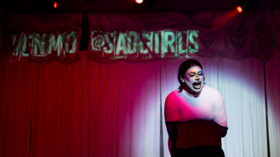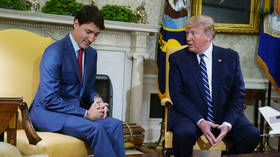US drag-show legislation violates First Amendment – judge

A federal judge in Tennessee has issued a temporary injunction delaying legislation due to come into effect on Saturday, which would prevent drag shows from taking place in public or where children might be present. In his decision on Friday, Judge Thomas Parker said the law was a violation of free speech.
“At this point, the court finds that the statute is likely both vague and overly broad,” said Parker, an appointee of former US President Donald Trump. He added that the state had so far failed to posit a valid reason why the law should be introduced. “Ultimately, the statute’s broad language clashes with the First Amendment’s tight constraints,” Parker said.
The bill, which was passed by the state legislature earlier this year, states that “adult-oriented” drag shows are “harmful to minors.” It placed strict restrictions on where these types of performances can take place, precluding anywhere that a child could be present.
The proposal of the law – which makes no mention of the word ‘drag’ – comes amid efforts by Republican lawmakers in at least 15 states to impose restrictions on theatrical performances by “male or female impersonators.” The legislation had also classified drag performers as adult entertainers, similar to strippers or exotic dancers.
Tennessee’s Republican Governor Bill Lee had argued that the law would protect children from being “potentially exposed to sexualized entertainment, to obscenity.” Instead, Parker sided with Friends of George’s, a Memphis LGBTQ theater company that filed a lawsuit against the state.
Other critics of the legislation have also said it was unconstitutional and that the concerns of the state were already addressed in pre-existing obscenity laws. It was also argued that the law had unfairly targeted the state’s LGBTQ community.
Lee had also come under fire earlier this year after he signed into law legislation which banned gender-affirming care in the state. He has faced criticism for perceived anti-LGBTQ stances, particularly after a photograph emerged of him dressed in women’s clothing in 1977. He called the comparison of the photograph and current drag show legislation proposals “ridiculous.”














